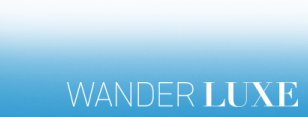
Like Jean Grey rising from the ashes, LA Comic Con has returned to DTLA. For the first time since quarantine, Southern California’s premiere comic book culture event is back.
For Chris DeMoulin, CEO of Comikaze Entertainment, the company that produces LA Comic Con, serving Los Angeles-area fanbases is one of the principles of this nexus of nerdery.

“We want two things to always be true about LA Comic Con,” explained DeMoulin, sitting in an empty convention room before one of the LACC’s many pop-culture panels. “One: It’s by fans, for fans. A filter for every decision that we make is, ‘will this be fun for fans? Is this what the fans want?’ The other mantra is, ‘It’s got to be LA.’ LA is such a neat place. It’s not just the center of the entertainment universe, whether you’re talking about podcasts, or TV, or movies, or video games, but it’s the mash-up of our pop culture.”
This overlap of geek niches is embodied in Jeanne Basone, a founding member of the Gorgeous Ladies of Wrestling, better known as GLOW.

For those too young to remember, GLOW was the first pro wrestling show to solely showcase women. A native Californian, Jeanne wrestled under the nom de GLOW “Hollywood,” which infused her television persona with SoCal’s hard rock culture.
“It was the 80’s and I was really into 80’s metal and music,” described Hollywood, standing in front of her convention booth piled with headshots waiting to be autographed. “So I was like crimped hair, let’s have those gloves, fishnets. Basically, I made the character more like me.”
For Hollywood, the legacy of GLOW reflects the diversity of LA Comic Con, especially when it comes to its girl geeks.
“Our show was unique,” continued Hollywood, “because you could have big girls, small girls, and women of all colors. That is a very cool thing, that we had all races. Women are just as strong as men. It’s empowering.”

Empowering women of color is important for comic book culture, which tends to be a straight white cisgender boys club. Fortunately, LA Comic Con provides a platform for diverse artists, writers, and cosplayers, such as Alia aka “Magicalblackgirl.” As a cosplayer of color, Alia often faces criticism from nerdy incels.
“There are people that are sticklers for accuracy,” said Alia, sporting Michelle Pheiffer-era Catwoman couture. “We’re just dressing up. I’m a black woman, I’m plus-sized. People on the internet are like, you don’t have the superhero body type, or that character isn’t brown. At the end of the day, we’re nerds, we’re dressing up, we’re having fun.”
Another marginalized group supported by LA Comic Con is the LGBTQ+ community. As an event that emphasizes a family-friendly atmosphere, LA Comic Con has helped to mainstream queer culture for the next generation of nerds.

“We were all marginalized, creators, characters, we were all stereotyped,” said as noted by Ted Abenheim, president of the LGBT comic book non-profit Prism, which has been featured at LA Comic Con since 2011. “There’s been a change in queer characters in comics and television. These YA children’s books that have queer content are amazing. It’s just been in the last six or seven years that you have books aimed for young readers and teens with LGBTQ content. There’s a book called Magical Boy about a trans hero coming out, from Scholastic, a company that publishes Harry Potter. There’s been a huge change.”
And for ChrisDeMoulin, providing a weekend-long clubhouse for comic book culture’s myriad communities to coexist is a boon for Southern California.
“We respect everybody in our culture today and bring them together,” Chris averred. “Anything that’s doing that is a good thing. There’s a lot of divisive things out there. The importance to us on why we were so focused to determine if we could have a safe convention is because we as human beings need community and we need each other.”

And for more of Mike Ciriaco‘s coverage of LA and beyond, hit up his Gaycities content.
Don't forget to share:


















